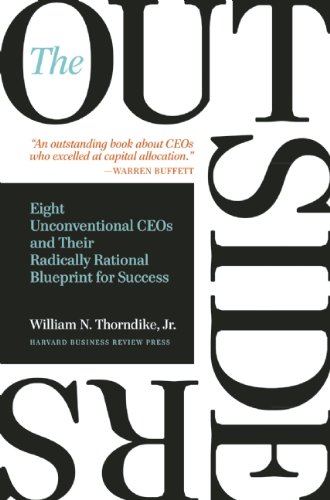

This article is an excerpt from the Shortform summary of "The Outsiders" by William N. Thorndike, Jr. Shortform has the world's best summaries of books you should be reading.
Like this article? Sign up for a free trial here .
Why should you listen to Warren Buffett? If his own success is proof, Warren Buffett’s advice is certainly worth considering.
Not only is Berkshire Hathaway valued at almost $500 billion in 2018, but Warren Buffett’s advice has been sought after by numerous business leaders. Warren Buffett has advised numerous CEOs and leaders of major corporations, including Katharine Graham of the Washington Post. Below are some pieces of Warren Buffett’s advice and strategies for investing and management.
Warren Buffett: Advice for Investment and Management
Warren Buffett’s advice is that as an investor, it’s important to be “fearful when others are greedy, and greedy when others are fearful.”
Warren Buffett’s advice is to be patient. Buffett is content to be patient for years when companies are overvalued and he doesn’t see acceptable opportunities. Then, when other investors are in turmoil (as in the 2008 financial crisis), Buffett strikes aggressively.
Opportunistic Investing
Beyond larger trends, Warren Buffett’s advice is to be opportunistic. He enjoys finding opportunities within industries and individual companies. Pessimism within an industry can obscure strong performers within the industry—Buffett invested in Freddie Mac in 1989 during the recession, and in General Dynamics in 1992 during the defense industry slump. He also finds companies in the midst of a major strategic change, such as when a new CEO announces a focus on the company core and divestments of low-performing businesses.
This also means being ruthless about not tolerating poor performance and low returns. When Buffett purchased Berkshire Hathaway in 1965, he chose never to enter textiles again, seeing it as a commodity business with poor long-term prospects. Instead, he merely harvested capital from Berkshire and invested it elsewhere. Choosing what not to do is often as important as choosing what to do; and Warren Buffett’s advice to be patient could save you a bad investment, and lead you to a much better one.
Decentralized Management
Warren Buffett is famously hands-off with his management of owned companies, believing this reduces overhead and encourages entrepreneurship. When he buys a company, he leaves the management team in place and rarely makes changes. Then Buffett doesn’t expect the CEO to call him unless they need Warren Buffett’s advice. There are no regular budget meetings. As long as the company performs, Buffett leaves them alone.
Acquisition Advice
Buffett is remarkably quick at making a purchase decision. He spends less time on due diligence and often makes deals within days. He never visits company locations and rarely meets management. He can move quickly because he only invests in industries he knows deeply, and he has honed his investment criteria. This lets him filter the key performance indicators of a business, and Warren Buffett’s advice on this front would likely to be to develop your own criteria for investing, and stick to it.
Warren Buffett is a business powerhouse, and his counsel has been sought after by business and world leaders alike. Warren Buffett’s advice could help you grow your company, or just learn to make smarter and calculated decisions.

———End of Preview———
Like what you just read? Read the rest of the world's best summary of William N. Thorndike, Jr's "The Outsiders" at Shortform .
Here's what you'll find in our full The Outsiders summary :
- What great CEOs like Warren Buffett do that average CEOs don't
- How to master the art of capital allocation
- How to be a great manager that your team is excited to work with






